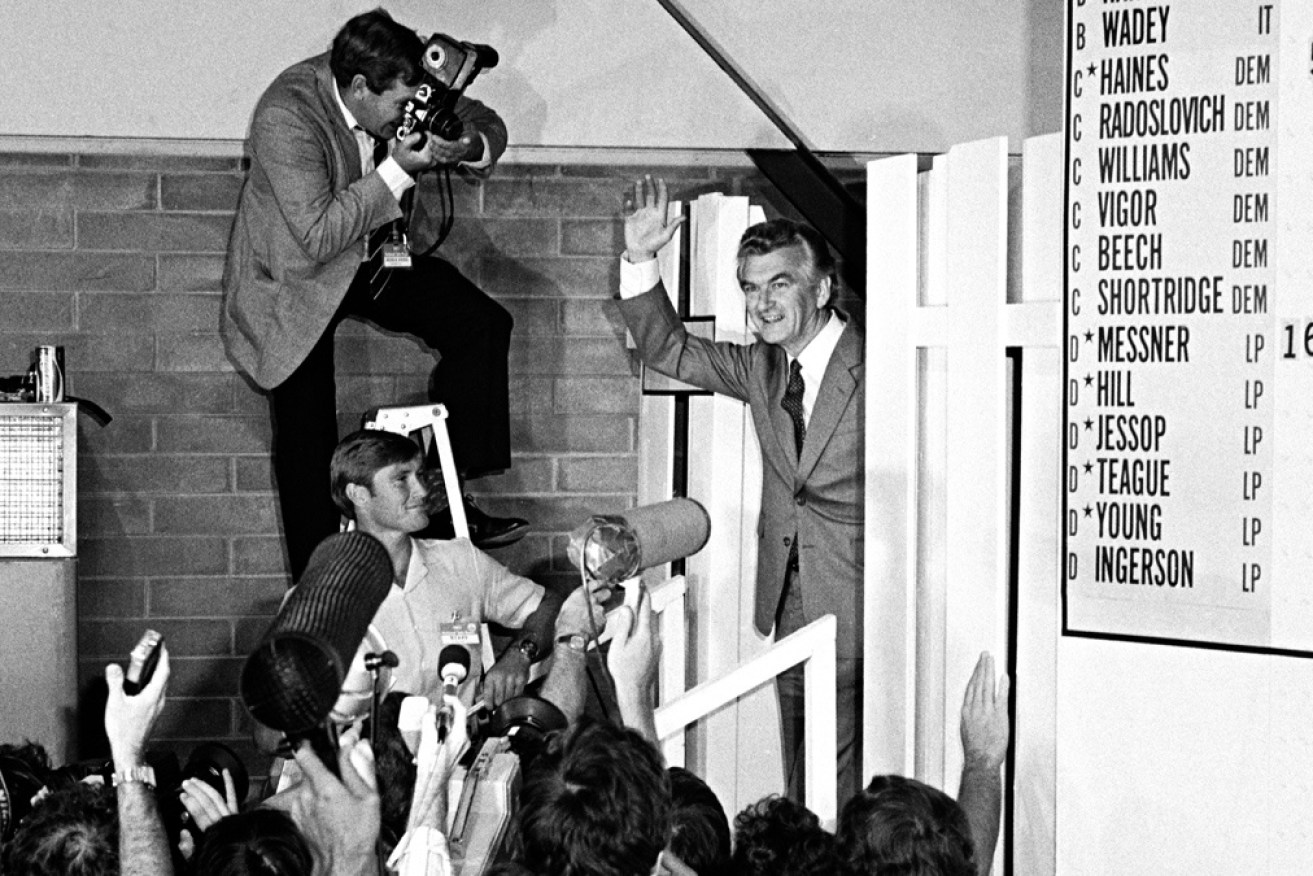How Bob Hawke hatched a plan to give all Australian workers superannuation


Bob Hawke was crucial to the creation of Australia's $3 trillion super system. Photo: AAP
When Bob Hawke, the newly minted leader of the ALP, won the 1983 general election in a landslide, few workers had superannuation.
But over the next nine years he, along with Treasurer Paul Keating, drove the introduction of a world class retirement income system – now worth $2.7 trillion – that has significantly improved the lifestyles of millions of Australian retirees.
Perhaps surprisingly, Mr Hawke did not personally push directly for the introduction of super when he was President of the Australian Council of Trade Unions up to his election to Parliament in 1980.
“Super had been on and off the agenda through the ’70s and early ’80s,” said Garry Weaven, former assistant secretary of the ACTU and a founder of the industry super fund movement.
“The thinking was there would be a national super scheme that the ALP would support if the chance came to push it politically.”
“Bob Hawke was in favour of it, but at that stage he saw it as a bit theoretical,” Mr Weaven said.
Once Labor was in power things started to change dramatically – building and transport workers won super rights and the movement began to spread across the industrial landscape.
Bob Hawke and his Labor government were keen to deliver workers higher living standards but were equally desperate to end the stagflation (high wages and low growth) that had dogged the economy since the 1970s.

Mr Hawke earned a reputation as a fierce negotiator. Photo: AAP
Putting his formidable negotiating skills to good use, Mr Hawke established the prices and incomes accord with then-ACTU chief Bill Kelty that was aimed at putting the lid on wage growth with trade-offs in the social wage.
Those trade-offs included the introduction of Medicare, increases in low-income family support, targeted tax cuts and, eventually, superannuation.
“Eventually super became a safety valve,” Mr Weaven said.
“Bob saw it as a great economic solution that gave workers a leg up without pushing up consumption, imports and the inflation rate.”
There were problems with super in the 80s, however: it didn’t cover all workers, and employer contribution rates were so low that it couldn’t deliver workers much in retirement.
To get around this Mr Hawke and his enthusiastic treasurer Paul Keating went to Kelty with a real super solution – a system that would cover all workers, start off at 3 per cent of wages, then move to nine per cent over 10 years.
Mr Keating later said Mr Kelty couldn’t believe his ears and took up the offer with gusto.
But implementing such a system would take new legislation, and that made things sticky for the ALP.
Paul Keating was ambitious and impatient, wanting Mr Hawke to keep a commitment that he would step aside and allow his Treasurer to become PM in 1990.
Mr Hawke reneged and Paul Keating challenged for the leadership in early June 1991. Mr Keating went to the back benches after losing, just at the time the new national super legislation was being worked up.
That in turn meant that Mr Hawke and new treasurer John Kerin had to steer the creation and passage of the new legislation while Mr Keating exercised what influence he could from the back bench,
The worm turned again in December 1991 when Mr Keating once more challenged, this time successfully. Bob Hawke left Parliament in February 1992, leaving Mr Keating, the new PM, to steer his much loved superannuation reform through Parliament that year.
Ironically, Bob Hawke did not get to implement the universal super reform he had played such a critical role in forming, but his vision and skills are still evident in the universal super system with its $2.7 trillion of worker capital owned by 14.8 million Australians.
– The New Daily is owned by Industry Super Holdings.








